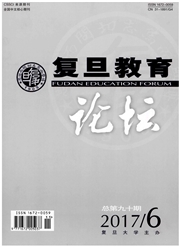

 中文摘要:
中文摘要:
近两年MOOC(大规模网上公开课程)所取得的突破性进展,已对传统教育领域形成巨大的革新压力。本文聚焦华语地区,对中国大陆、台湾地区、香港特区及新加坡的MOOC现状进行梳理,从教育政策、涉及高校、平台建设、发展规模、课程特色等方面进行比较分析,试图通过本土语言因素、国际化环境、教育传统、保障体系、教师投入、建设动机来解释各地的差异及其发生机制,并尝试对如何推进华语区MOOC发展作出思考。
 英文摘要:
英文摘要:
The breakthrough made by MOOCs (Massive open online courses)has exerted great innovation pressure on traditional education in recent years. This article focuses on the development of higher education MOOCs in Chinese-speaking territories, including mainland China, Hong Kong, Taiwan and Singapore. From the perspectives of education policies, concerned universities, platform development, scale of development and course features, comparative methods are applied to analyze the differences in MOOC development among regions. This paper will evaluate the mechanism behind the variances. In the end, native language, degree of globalization, tradition of education, supporting system, motivations and teachers' input are concluded as key factors in the process of MOOC development.
 同期刊论文项目
同期刊论文项目
 同项目期刊论文
同项目期刊论文
 期刊信息
期刊信息
